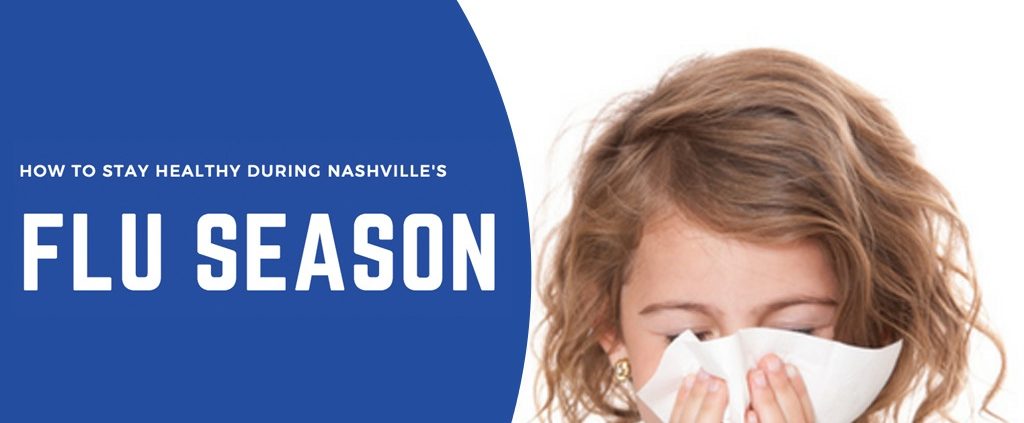How to Stay Healthy Through Nashville’s Flu Season
As winter weather continues, so do the aches, coughs, and chills. You’ve probably read the headlines about this year’s specific strain of influenza being the most widespread since the Centers for Disease Control and Prevention began its current surveillance system 13 years ago. In fact, the flu hospitalization rate is at the highest number ever recorded at this point in the season.
Fortunately, despite the scary headlines, there are steps you can actively take to stay healthy this flu season. Even if you get sick with flu symptoms, our Nashville doctors are here to make sure you get the medical care you need to return to life as normal.
Flu Prevention Techniques You Can Practice Today
By following these tips, you can minimize your risk of getting the flu. Of course, there is no fool-proof way to completely slow or stop the spread of the flu, but we encourage you to take the following actions to protect yourself and others.
- Get vaccinated! You might be wondering, “Is it too late to get a flu shot this season?” While getting a vaccine is better earlier in the season, there are still a few weeks to go and vaccination could provide some benefit. Even if this year’s flu vaccine isn’t the best match, it can help reduce the severity of the flu and minimize downtime if you do get sick.
- Practice healthy hygiene and good cleaning habits. One of the best ways to avoid the flu is to regularly wash your hands, especially before eating. Use soap and water for at least 20 seconds, rubbing in circles, cleaning between your fingers, and scrubbing under your nails. Also take the time to regularly clean and disinfect surfaces that may be contaminated. Focus on areas that are touched frequently such as countertops, door knobs, faucets, and even your cell phone!
- Avoid close contact with sick people. Families are especially at risk for spreading the flu between family members. While it is important to care for each other, it is equally important to limit contact as much as possible. It can be difficult to avoid someone with the flu if you’re the one taking care of them, but if possible, try to give them their own room for sleeping and recovery.
- Exercise and sleep. Getting the recommended amount of sleep is one of the best things you can do for your immune system. When your body is well rested, it can help aid you in flu prevention. Regular exercise can also help boost your body’s defenses.
- See your primary care physician. With the exception of emergency warning signs or complications, most patients do not need to go to the Emergency Room to care for the flu. If you get sick with flu-like symptoms but have a non-emergency illness, see your primary care doctor instead. Going to the ER can expose you to others who have it, increasing the likelihood of infection.
When to Seek Medical Attention
The good news is that the majority of symptoms associated with the flu typically last about a week and will subside with home treatment. However, the flu can lead to serious complications that require medical attention. If you experience difficulty breathing, chest or stomach pain, dizziness or lightheadedness, or severe vomiting, you should call your doctor. These red flags are universal for both adults and children.
At St. Thomas Medical Group, we know how important flu prevention is for your quality of life. If you get flu-like symptoms, we’re also here to help you get healthy as quickly as possible. Whether you’re a new or returning patient, you can make an appointment online today or call us at +1 (615) 297-2700.



